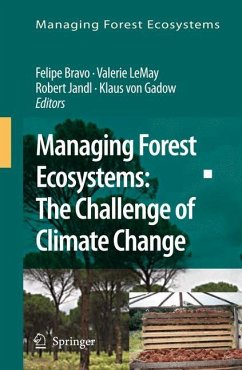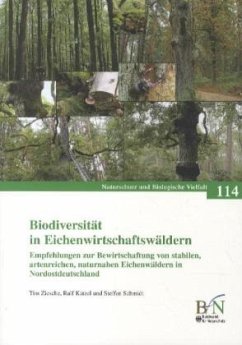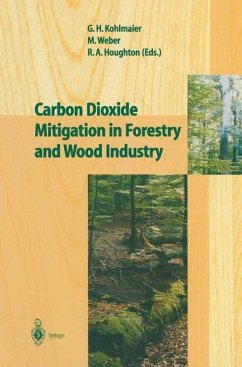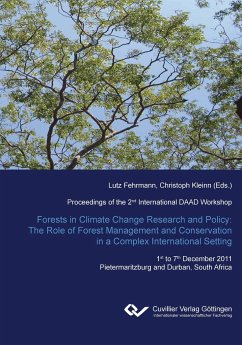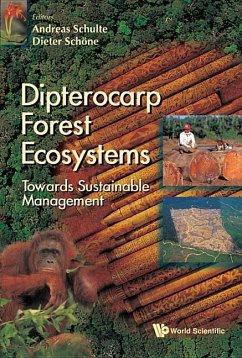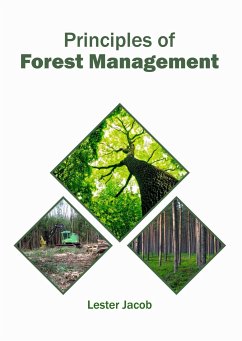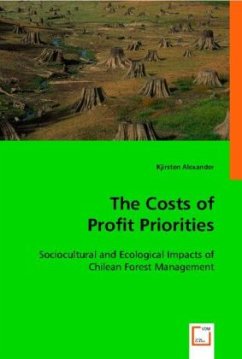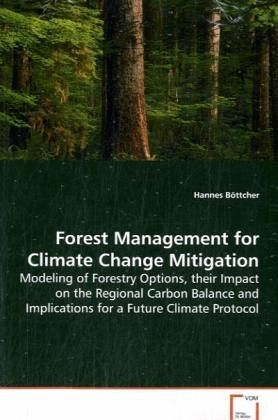
Forest Management for Climate Change Mitigation
Modeling of Forestry Options, their Impact on theRegional Carbon Balance and Implications for a FutureClimate Protocol
Versandkostenfrei!
Versandfertig in 6-10 Tagen
45,99 €
inkl. MwSt.

PAYBACK Punkte
23 °P sammeln!
The observed increase in global average temperatureduring the last half century is most likely due tothe concurrent increase in atmospheric greenhousegases. In order to avoid dangerous global warming,other mitigation strategies besides emissionreduction have to be developed. Forests store carbonwhile growing and forest management can aim atincreasing carbon stocks in- and outside the forest.The book explores impacts of past and recent forestmanagement on the forest sector carbon balance.Results reveal that the inclusion of all mitigationservices offered by the forestry sector matters withrespe...
The observed increase in global average temperatureduring the last half century is most likely due tothe concurrent increase in atmospheric greenhousegases. In order to avoid dangerous global warming,other mitigation strategies besides emissionreduction have to be developed. Forests store carbonwhile growing and forest management can aim atincreasing carbon stocks in- and outside the forest.The book explores impacts of past and recent forestmanagement on the forest sector carbon balance.Results reveal that the inclusion of all mitigationservices offered by the forestry sector matters withrespect to climate benefits and land-owner revenue.An ecosystem-centered view favors the conservation ofcarbon in forests while an accounting of woodproducts and substitution effects offersopportunities in long-rotation timber and bioenergyproduction.Countries under the Kyoto Protocol may include carbonsinks resulting from forestry activities since 1990to meet reduction targets. Effects of past practicesand disturbances, however, may overwhelm effects ofrecent management. The book examines how this legacyeffect can be accounted for to set incentives forimproved management.



